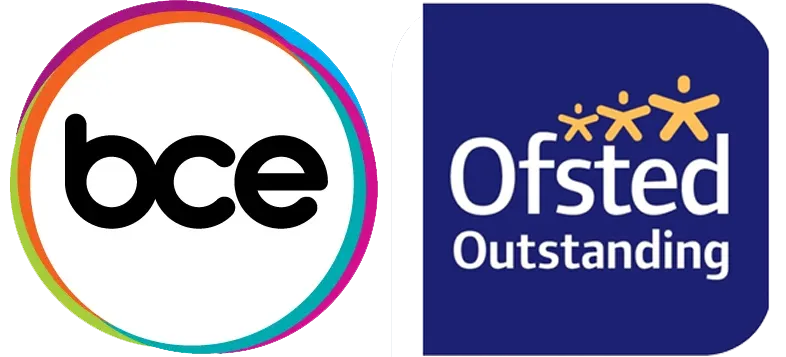
Are you at the point where you’re looking into your options for further study, whether that’s staying on for sixth form or considering going straight to college?
It’s a tough choice, so you’ll want to know the difference between the two. They are both a great option for getting where you want to go in your career, but there are still many differences to keep in mind, not just the studying but also the culture.
It’s important to know about these differences so you can make your mind up about which direction to go with.
What is sixth form?
Sixth form is a continuation of your education at secondary school. Many aspects will be the same and it is meant for those around the ages of 16 to 18. The school will offer a range of A and AS-level courses, which can help with getting into college. There’s also the possibility that some sixth-form courses are geared towards more vocational-type schooling and education.
What is college?
A college is an advanced level of education that offers a variety of programs. You can gain certificates and diplomas or join apprenticeships or T-level courses. Colleges throughout the UK can either be public or private and both offer a varied field of study. Some even focus on specific areas such as business, medicine or the creative arts – like BCE!
The differences between sixth form and college
It’s key to note that while both options provide an excellent type of education, they have differences that should be considered.
1. Types of courses available
Sixth forms will typically stop at A levels, although some may offer more advanced certifications. Colleges, on the other hand, will offer different levels of qualifications. Colleges also tend to be more practical in the sense that you will gain a lot more hands-on experience and not only learn theory but practice as well.
Keep in mind that both are stepping stones for those that are considering university, but if you want to go down a direct route to university then sixth form may be faster. On the other hand, if you’re aiming to explore some options first, or to develop your skills in an area you’re passionate about, then going to college may be your best option.
2. Timetables and lessons
Sixth form is very similar to secondary school. You are typically busy throughout the day with lessons and you’ll get free periods for self-directed study in some cases. All in all, A levels are designed for you to focus on your studies completely, and the timetables are quite tight on that. This is a pure, focused mindset, typically with one agenda needed – finishing with high grades in all of your A levels so you can get into university.
Lessons will be done in a familiar setting and you’ll probably end up having smaller class sizes just like in secondary school. That also means with a focused mindset, if you end up needing help, it’ll be easier to approach for help from classmates and the teacher.
In college, it’s a lot more relaxed with the timetables, and there could be several hours between lessons and maybe even a day of the week with no lessons, depending on how the college builds the schedule. On the other hand, the classes will be much bigger, so it’s important to manage yourself properly. You’ll be treated more as an adult so it’s up to you to turn up to your lessons!
3. Other students
When you go to sixth form, you will be amongst the oldest students at the school. The rest of the students are the younger ones in the years below you. When you go to college the opposite will be true, so you’ll be with a diverse group of people of different ages and backgrounds.
4. Location
The location for sixth form will typically be the same as the secondary school you went to, so it will be familiar. However, when you go to college, it typically is in centralised locations so you might be going to a different location than you’re used to with hundreds, if not thousands, of new people.

The pros and cons of sixth form and college
Although it depends on what you’re looking for in the end, it’s worth considering some pros and cons regarding the difference between sixth form and college.
Pros of Sixth Form |
Cons of Sixth Form |
| Familiar setting and same commute | It can feel like extended high school |
| Focused studies with a target to get your A-Levels | You won’t have the opportunity to explore options |
| You will know the teachers already | Less freedom in terms of schedule |
| You might stay with the same classmates and friends |
Pros of College |
Cons of College |
| Fresh new environment to reinvent yourself | A new environment isn’t for everyone |
| You’ll be able to meet new and diverse people | Many more students than you might be used to |
| Variety of courses and options for practical skills | Various age groups and opinions to consider |
| First time feeling like an adult |
How do I know which one is suitable for me?
Knowing which one is suitable for you isn’t the easiest decision to make. When it comes down to it, it totally depends on you and what your goals are in the future. If you want to go to university as soon as possible, then maybe you’re looking at sixth form and completing your A-levels.
If you are unsure yet, or if you know what you want to actually do already, college can help speed up your career options up by giving you a hands-on, focused education where you need it most.
There’s no wrong answer here and there are benefits to both. Getting a higher form of education will always be beneficial, no matter where it is, even if you choose to pivot or change what your focus ends up being a little further down the line.
Further information to help you make a choice
If you have a passion for creative arts, either academically or as a career, then you should consider a creative college with a diverse course offering designed for people like you.
At Big Creative Education, for example, that’s what we do! We’re here to provide you with creative courses ranging from game design to dance and creative media to marketing. Regardless of where you will end up in the end, you will always be surrounded by like-minded individuals who have the same passion for creativity as you do.




